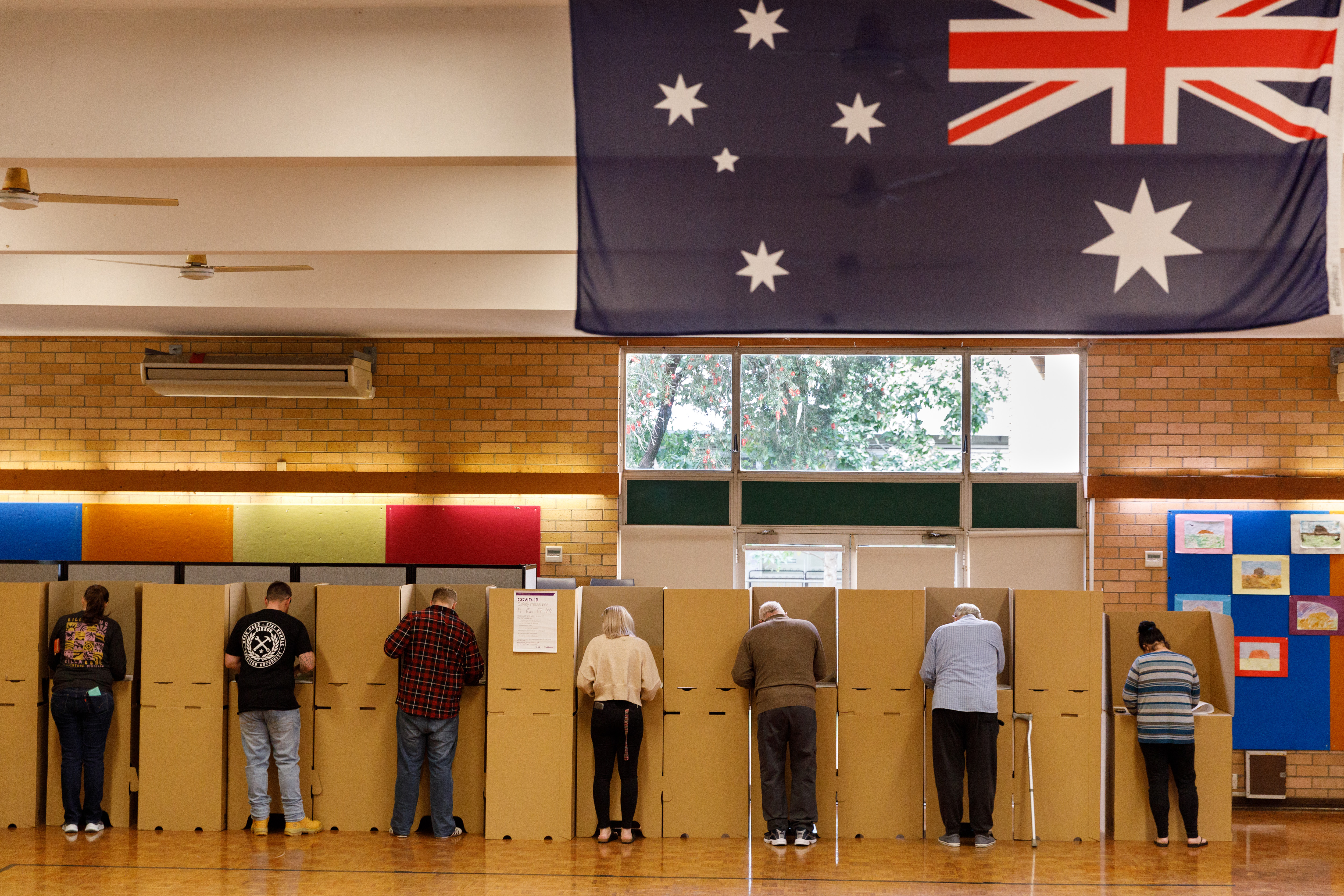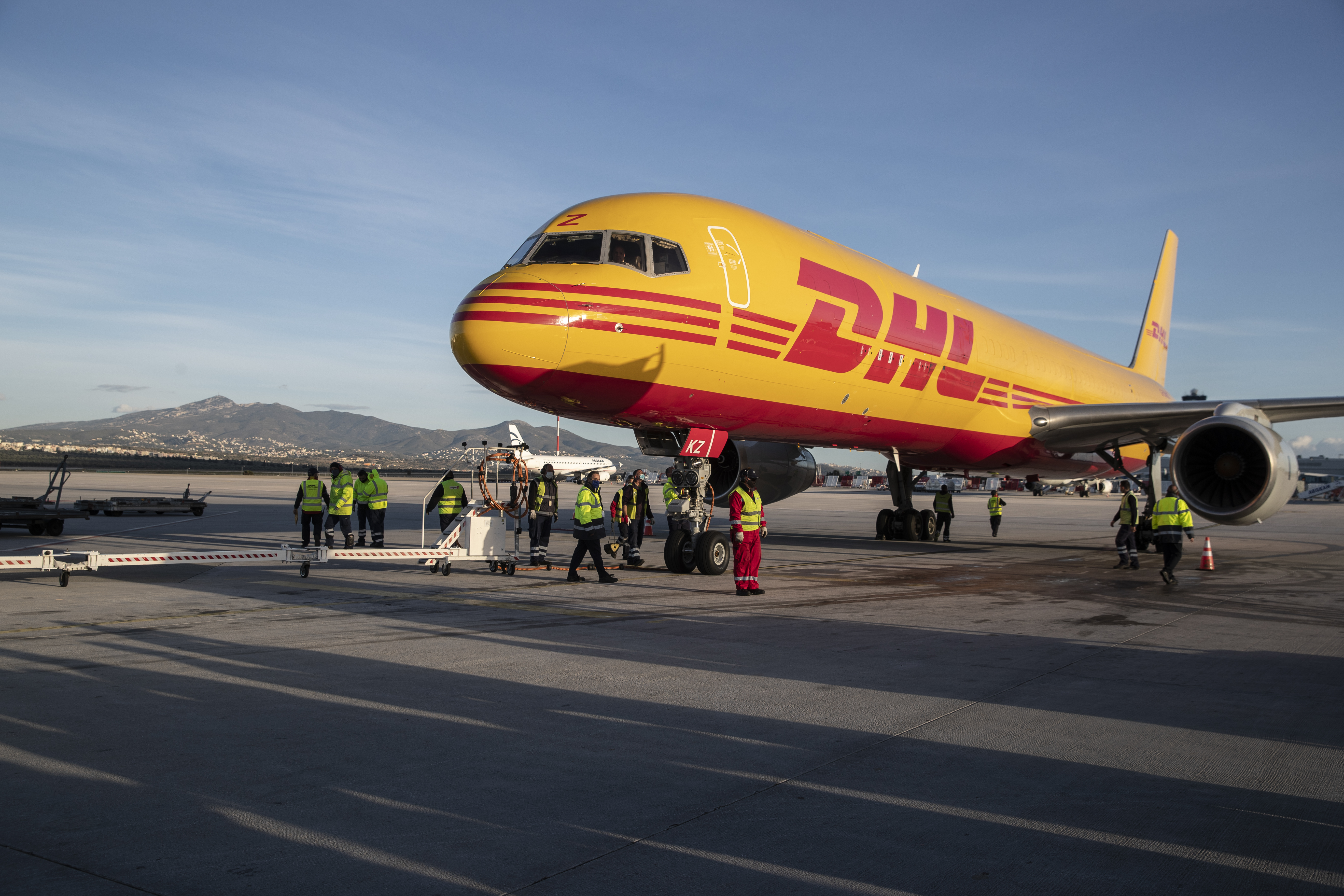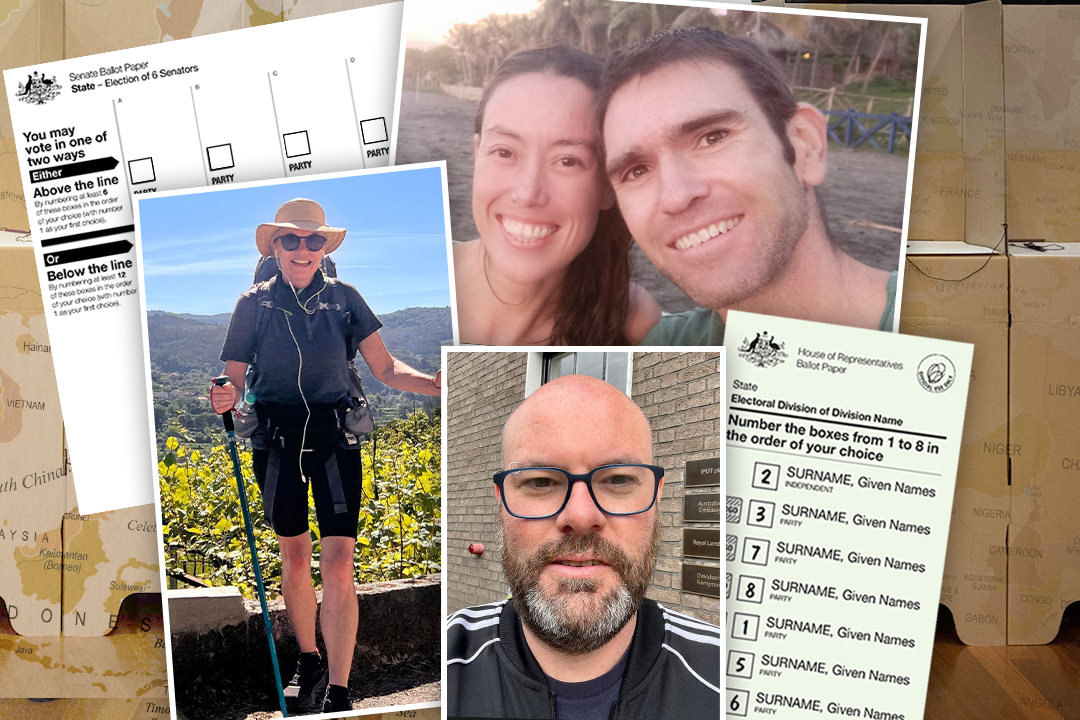Days after the election, "disenfranchised" Australian voters all over the world are fuming as their chances of making their voices heard slip further away.
Citing the pandemic, the Australian Electoral Commission slashed the number of embassies offering in-person voting this year, from more than 100 down to just 19, sparking widespread concerns postal systems wouldn't be able to cope.
For some, such as Dublin-based software engineer Adrian Hempel, those concerns were well-founded.

Three years ago, just like tens of thousands of Australians in capital cities around the world, the 46-year-old headed into his local embassy to cast his vote.
But this year his only options were to apply for a postal vote or fly abroad to London, the closest embassy offering in-person voting.
Election day came and went with no sign of the ballot Hempel said he had been assured was lodged with Australia Post weeks earlier.
"I'm very upset. The practical implication of it is that I've been disenfranchised this election," the Sydney electorate voter told 9News.com.au.
Hempel said he called the AEC three times in the lead-up to polling day and confirmed the ballot papers had been sent to the correct address.
"I felt like I wasn't a part of it," he said, of election night itself.
"It was a really important election to me and while my vote on its own may have only played a very small part, I'm hearing from a lot of other Australians overseas that they've had a similar experience.
"So it has me thinking that together we could have had some impact on the result."
Australians have until June 3 to get their postal votes in but Hempel and other electors who spoke to 9News.com.au have little faith in their ballots arriving in time to be returned to Australia by the deadline.

Table of Contents
Overseas voting dependent on COVID-19 situation
For its part, the AEC said it had been working closely with the Department of Foreign Affairs and Trade to determine what voting options could be offered in each country.
A spokesperson told 9News.com.au in-person voting availability was based on local health restrictions and environments, including a safe workplace for DFAT staff.
The commission used courier services to send the ballots in some cases — DHL according to many overseas voters — but voters weren't sent tracking numbers along with their confirmations.
Overseas citizens could also return their ballots directly to embassies — even those not offering in-person voting — to be sent back to Australia via diplomatic mail.
But none of that was any comfort to Allison Bradwell in Malaysia, who said she was still waiting on her postal vote package even though her husband had received his.

Nor to insurance workers Jay and Jon Harwood, whose year-long trip was interrupted by the pandemic, keeping them in Nicaragua for 18 months instead of the three weeks they had planned.
Still smarting from the lack of assistance offered to Australians stranded overseas during the pandemic, Ms Harwood said they were now reconsidering "whether we want Australia to be our permanent home".
They were a long way from an embassy on election day, enjoying an island off the Croatian coast, but didn't even have the option of travelling to the capital of Zagreb, where in-person voting was available in 2019, to cast their ballot.

Instead, Ms Harwood said the Bucket List Travellers vloggers applied for postal ballots that arrived days after they'd left where they were staying.
"That was quite frustrating for us because, you know, we are quite active voters," the Warringah voter said, from Albania.
"We didn't like the thought of being disenfranchised, and you know, not having our say.
"So, yeah, it was disappointing that we weren't given the opportunity to vote and we did try our best."
Shayne Evans, who runs the Australians in LA Facebook group, said she had no problems receiving her ballot but "plenty" of fellow group members were still waiting.
"It seems to be a but hit and miss with people across the USA who received them and who didn't," she said.
"My neighbour is an Australian Expat as well. I received my papers but she didn't receive hers."
In an unscientific Facebook poll on Thursday, 26 group members received their ballots before the election, 12 after the election and 11 were still waiting.

Tens of thousands of overseas voters potentially impacted
More than 60,000 Australians voted overseas in 2019 and just 1128 of them cast postal votes, according to the AEC's figures.
About a third of those electors cast their votes in Aussie hubs such as London, New York, Berlin, Paris and Ho Chi Minh City and San Francisco, which all maintained in-person voting this year.
But Hong Kong, Singapore, Vancouver, Tokyo and Kuala Lumpur — where more than 10,000 people voted all up in 2019 — were all restricted to postal-only voting this year, along with most European capitals.
The AEC is yet to publish overseas voting figures from this year but said it expected a "greatly reduced number of overseas voters" compared to 2019.
"Given the impact of COVID most Australians overseas will be residents, rather than travellers, meaning a postal service is accessible for them," the spokesperson said, adding that about 45,000 postal vote applications had been made by Australians overseas by the end of April.

'It was either calculated and inept, or inept'
But that wasn't the case for Melbourne-based TV producer Karyn Wood, who was upset to realise her pre-booked European holiday began before pre-poll voting opened in Australia and kept her away from home over election day.
She was walking the Caminho Português from Porto to Santiago de Compostela in the west of Spain this month, making receiving a postal vote almost impossible.
But the mother-of-two went to heroic lengths anyway. Wood said she several conversations with the AEC before eventually nominating a hostel on the border of Portugal and Spain to receive her ballot, only to arrive and find it had closed during the pandemic.
"I think that it [the dramatic reduction in in-person overseas voting] along with reducing the amount of time within which you could pre-poll was calculated," she said, admitting her own "amusing" difficulties voting were hard to fully blame the AEC for.
"It was either calculated and inept, or inept. I mean we've been voting in all of those embassies and doing pre-polling for years."

The AEC spokesperson said individual accounts were not representative of the postal voting service as a whole.
"Suggestions of 'nefarious' or 'calculated' decisions made to apparently reduce the service are of course incorrect," they said.
"Running electoral services in numerous locations overseas takes surety around staff, materials and logistics. It cannot be turned on overnight meaning that decisions on particular cities had to be made early.
"The potential to promise an in-person service only to potentially have to take it away on short notice was also a factor in decision making as this would have left people with no options."
Many voters who spoke to 9News.com.au felt this wasn't good enough.
"Two years into a pandemic the government should have a workaround for stuff like this," Ms Harwood said.
"It's not like they haven't had lead time they've had sufficient time to be able to organise alternatives."
Even among those who did receive their ballot before election day, such as holidaying English professor Sarah Gleeson-White, there was frustration at not being able to vote in-person at the nearest embassy.
"My sense is COVID is being used as an excuse, a justification," she said.
"I can hardly imagine hordes turning up to vote, and we manage significant crowds in other settings—why not to vote?
"As I say, shameful."


